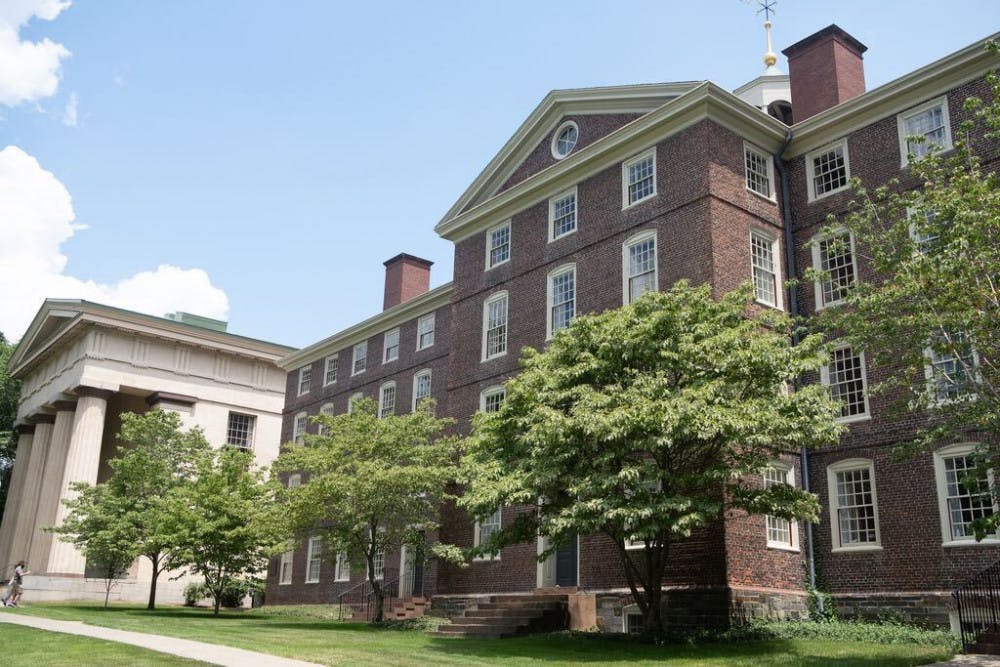President Christina Paxson P’19 reaffirmed the University’s support for the Deferred Action for Childhood Arrivals program, Black Lives Matter movement and LGBTQ+ rights during Tuesday’s special faculty meeting.
Paxson said that she is “very heartened” by the Supreme Court’s ruling to deny the Trump’s administration's attempt to end DACA. The program, created by the Obama administration to shield people that were brought into the United States as children who held neither citizenship nor legal residency status, has been under attack by the Trump administration since 2017.
Paxson noted that the University has a long history of advocating for DACA and that it will “continue to advocate fiercely in the support of DACA.” She said that she hopes Congress will pass legislation that has “comprehensive immigration solutions to these issues” as DACA moves to a federal court trial.
In addition, Paxson spoke about the executive order ruling restricting immigrant working visas passed by President Trump on Monday, June 22. The “Proclamation Suspending Entry of Aliens Who Present a Risk to the U.S. Labor Market Following the Coronavirus Outbreak” does not allow scholars outside the U.S. to obtain H-1B working visas.
In a letter sent to some members of the Brown Community, the Global Brown Team explained that the order will not affect individuals that are currently in the U.S. It also will not affect holders of H-1B or Green Cards that are outside the country temporarily, nor will it affect anyone currently changing their visa status.
Additionally, the order will not affect F-1 and J-1 visas – the most common visas held by undergraduate and graduate students. It will also not affect Optional Practical Training (OPT) or STEM OPT, programs which allow students to work for 12 to 24 months after graduation.
Paxson said that the executive order was “quite disturbing.”
But Paxson added that, “fortunately,” the order will only directly affect three people at the University who are in the process of obtaining the H-1B visas. She stated that the University is “working closely” with those affected “to figure out solutions.”
Still, Paxson said that unless the order is revoked, it will affect future hiring for the University and “prospects for our graduating students” who might not be able to obtain working visas.
The University is working to address these concerns through a virtual community meeting for international students held by the Global Brown Team, and continued advocacy “with our congressional delegation and anybody in Washington who will listen,” Paxson said.
“I have spoken about this topic with members of Congress who are sympathetic, and they are on both sides of the isle, but they basically say 'it’s an election issue, it’s not controlled by Congress, it’s controlled by the president, and nothing good is going to happen before the election,” Paxson said.
Locke stated that the University has an obligation not only to be there for its community but also function “as an anchor institution in the state and in this country.” Fighting for DACA and H-1B visas constitutes an important component of this obligation, he explained.
“We are a global institution. We welcome people from all over the world to come here and study and work — and we learn from them and we are stronger because of those commitments,” Locke said.
Paxson also discussed the protests against police brutality and racism that have followed the death of George Floyd, expanding upon the University's new initiatives to fight racism.
“The horror of George Floyd's murder and the murder of others, the protest that follows it underscores that fact that this is work that has to be done and is work that has to be sustained over time to really to push against anti-Black racism," she said. “Our community wants us to step up and we are going to have to step up.”
Provost Richard Locke P’18 reiterated that the University is facing many challenges due to the public health and economic crises as well as a “moral crisis” related to anti-Black racism and violence.
Paxson also emphasized that the University supports the recent Supreme Court ruling that protects civil rights of LGBT workers, even if these protections were already offered at the University.
“It does not alter our operations” in any way, Paxson said. “It is just really important for this to be the law of the land that people can’t be discriminated against on the basis of gender, identity, sexual orientation and gender expression.”
At the next faculty meeting, Paxson said that attendees will vote on a motion that proposes that presidential election day — scheduled for November 3rd, this year — be a University holiday, so that students, faculty and staff are able to vote without being hindered by their work hours or course load.

ADVERTISEMENT




